De Palma Blu-ray Movie
HomeDe Palma Blu-ray Movie 
Blu-ray + UV Digital CopyLionsgate Films | 2015 | 107 min | Rated R | Sep 13, 2016
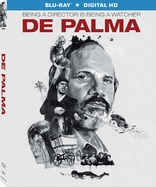
Movie rating
7.7 | / 10 |
Blu-ray rating
| Users | 0.0 | |
| Reviewer | 4.0 | |
| Overall | 4.0 |
Overview
De Palma (2015)
A biographical feature celebrating the entirety of film director Brian De Palma's filmography.
Starring: Brian De PalmaDirector: Noah Baumbach, Jake Paltrow
| Documentary | Insignificant |
| Biography | Insignificant |
Specifications
Video
Video codec: MPEG-4 AVC
Video resolution: 1080p
Aspect ratio: 1.85:1
Original aspect ratio: 1.85:1
Audio
English: DTS-HD Master Audio 5.1
Subtitles
English SDH, Spanish
Discs
Blu-ray Disc
Single disc (1 BD)
UV digital copy
Packaging
Slipcover in original pressing
Playback
Region A (locked)
Review
Rating summary
| Movie | 4.0 | |
| Video | 4.0 | |
| Audio | 4.0 | |
| Extras | 0.0 | |
| Overall | 4.0 |
De Palma Blu-ray Movie Review
Reviewed by Jeffrey Kauffman September 22, 2016It probably won’t come as any huge surprise to either fans or detractors of Brian De Palma that De Palma begins not with a clip from one of the director’s own films, but with that iconic opening sequence from Alfred Hitchcock’s Vertigo, with Jimmy Stewart clinging precariously to a rooftop rain gutter while a policeman tragically falls to his death. Anyone who has paid even cursory attention to De Palma’s career probably knows the undeniable imprint Hitchcock’s own films have left on De Palma, something that this documentary celebrates in its own way. De Palma makes no bones about the influence Hitchcock has had on him, relaying the story of how he saw Vertigo as a kid when it played at Radio City Music Hall, and how his life was forever changed by the experience. Some quick intercutting shows the fruits of that influence, including some now fairly famous “references” to Hitchcock’s oeuvre that are sprinkled throughout De Palma’s own filmography. De Palma is an ingratiating if not especially deep look at the surprisingly varied work of one of the perhaps underappreciated founders of what was once called “New Hollywood.” In fact one of the most interesting sidebars in De Palma is its recounting of De Palma’s earliest efforts, quasi-student films that offered some of the first screen credits to then unknowns like Robert De Niro and Jill Clayburgh. While Martin Scorsese, George Lucas and Steven Spielberg (as well as Francis Ford Coppola) have for whatever reason taken the lion’s share of attention given to this club of (then) youngsters who more or less marauded into the waning studio system to establish themselves as the new big men on campus, De Palma was there all along, and could even be seen as blazing the trail for the others (with the possible exception of Coppola). De Palma takes a more or less chronological tour through the director’s vast array of credits, with interstitial comments by De Palma himself.
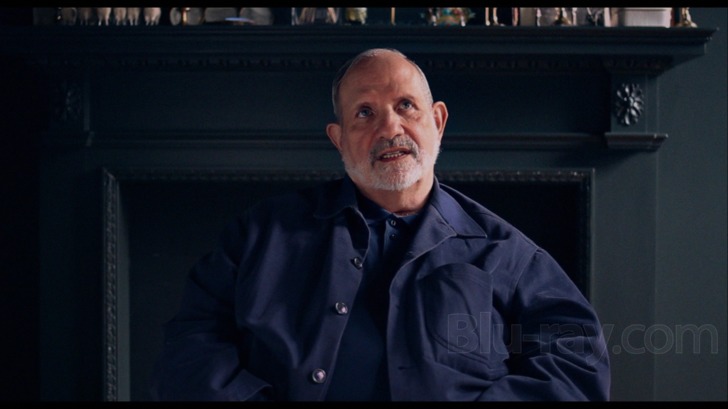
De Palma’s own take on Vertigo is indicative of the intellectual acuity he brings to his appreciation of Hitchcock’s work. While I’m personally not quite sure De Palma’s allegory on Vertigo is able to really hold water, he alleges that Hitchcock’s intention with this particular film is to provide an insight into what directors do in film: they create illusion, including femmes fatales and stalwart males, only to destroy it — “twice,” as De Palma cheekily adds. What might be as apt a metaphor would be the mesmerizing power of illusion, and in that regard, it’s obvious that De Palma himself is a willing participant in what might be called a cinematic trance, with Hitchcock the prime if not sole hypnotist.
While the connection to Hitchcock is all but unavoidable with De Palma, a quick recap of some of De Palma’s films easily proves that De Palma has never been one to pigeonhole himself, at least when the vagaries of making a “hit” weren’t necessary to sustain his career. For every Dressed to Kill or Body Double, there are manifest other offerings in completely disparate styles and/or genres, including such interesting if sometimes flawed efforts as Phantom of the Paradise, Scarface, The Fury, The Untouchables, The Bonfire of the Vanities, The Black Dahlia and Mission: Impossible. Clearly, this is a filmmaker without only Hitchcock on his mind.
De Palma isn’t shy about documenting his own failures, though, and he basically throws himself under the bus (while perhaps pulling a few collaborators like Tommy Smothers along with him) when he discusses such misfires as Get to Know Your Rabbit. He makes a convincing case that he, along with his other “New Hollywood” cohorts, were able to do something that will never be done again, simply because of the eras involved. He, along with the other aforementioned icons like Spielberg, Lucas and Scorsese, were able to “infiltrate” the existing if increasingly decrepit studio system, utilizing its opportunities (not to mention its still extant “toys”) without being overly beholden to the bean counters whom De Palma disparagingly comments would soon take over, destroying a certain creative impetus in the process.
De Palma at least glances on some really interesting technical data, like that great crane shot up to the blood bucket near the climax of Carrie, or De Palma’s use of split screen and, later, split diopter techniques, which is almost seen as an evolution of sorts by De Palma. That said, some of the most viscerally intense information, albeit information imparted in De Palma’s kind of calm, measured manner, is anecdotal memories about his family. De Palma isn’t shy about at least mentioning some of the family dysfunctions he grew up dealing with, but by the time he’s mentioning breaking into his father’s office because he knew his Dad was seeing a mistress there, and that he in fact found the mistress hiding in a third floor closet, some might start to wonder why there isn’t “another” film called De Palma at least in the planning stages, one that would actually provide a biographical account of the director’s life. I have the perfect actor to suggest for the lead role—take a look at the cover drawing on this new release, and see if you don’t think Paul Giamatti bears at least a passing resemblance to Mr. De Palma.
De Palma Blu-ray Movie, Video Quality 
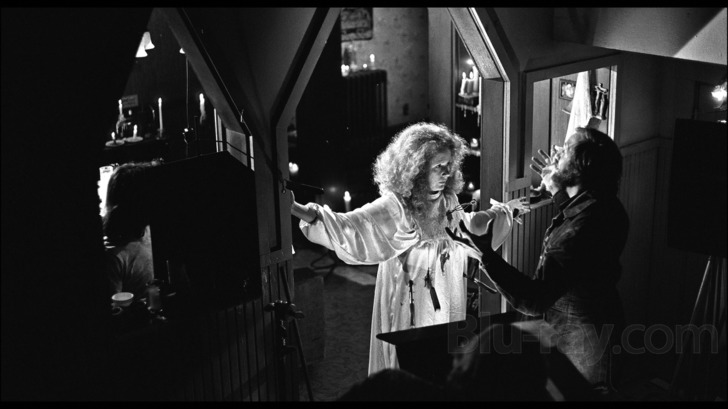
De Palma is presented on Blu-ray courtesy of Lionsgate Films with an AVC encoded 1080p transfer (largely) in 1.85:1. The IMDb lists the Canon EOS Mark II as the camera of record, which I assume means for the contemporary interview segments with De Palma, since the rest of this documentary is comprised of film clips. Many of the clips look at least decent, though it does appear that some at least were not sourced from high definition material, and older clips in fact look like they were sourced from old videotape. There are occasional compression issues on some of these clips which may be "baked in" or are otherwise ported over from the source (see screenshot 6). With that understandable variability taken into account, the overall look of this piece is solid if never really at "wow" levels. It appears that De Palma's entire interview was shot at one time (as evidenced by his clothes and the setting), and the palette, while subdued, looks natural, with very good detail levels.
De Palma Blu-ray Movie, Audio Quality 
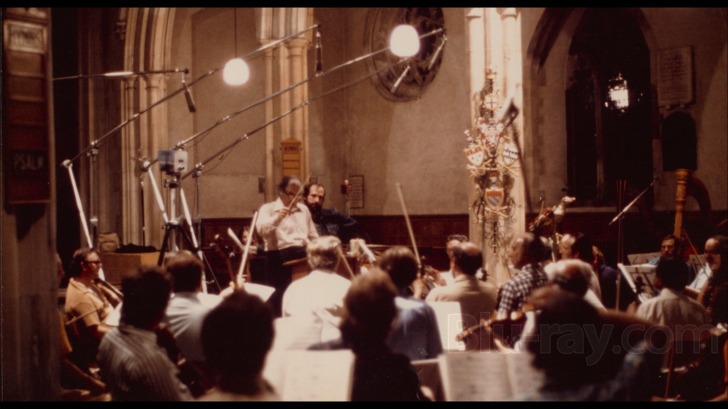
De Palma's DTS-HD Master Audio 5.1 track is probably a bit of overkill, achieving intermittent and sporadic surround activity courtesy of some of the film clips' soundtracks, as well as one sequence devoted to Bernard Herrmann's music. Otherwise, this is simply De Palma speaking, and as such there's not much opportunity for overwhelming immersion. De Palma's reminiscences are all rendered very cleanly, with no problems whatsoever.
De Palma Blu-ray Movie, Special Features and Extras 
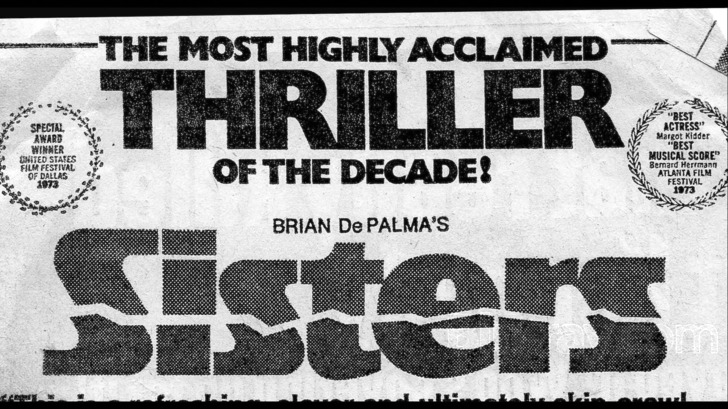
The only so-called "Extras" on this disc consist of trailers (not even for De Palma films!) and bookmarks, neither of which I consider a "scorable" supplement.
De Palma Blu-ray Movie, Overall Score and Recommendation 

Noah Baumbach and Jake Paltrow might not seem like likely suspects to craft such a genial documentary about a sometimes divisive figure in modern cinema, but their own love for filmmaking and obvious respect for De Palma help them to deliver an interesting, if sometimes too generalist, overview of De Palma's work. De Palma himself makes for an ingratiating tour guide as he looks back over the triumphs and tragedies of his now long career. Recommended.
Similar titles
Similar titles you might also like

Won't You Be My Neighbor?
2018

Bettie Page Reveals All
2012

Life Itself
2014

On the Basis of Sex
2018

The Salt of the Earth
Le Sel de la Terre
2014

I Am Not Your Negro
2016

The Dog
2013

The Company You Keep
2012

Dawson City: Frozen Time
2016

Three Identical Strangers
2018

David Lynch: The Art Life
2016

Christine
2016

Filmworker
2018

Norman Lear: Just Another Version of You
2016

The Look of Silence
2014

Foxes
1980

Boy Erased
2018

The Front Runner
2018

Freud
Freud: The Secret Passion
1962

Professor Marston and the Wonder Women
2017